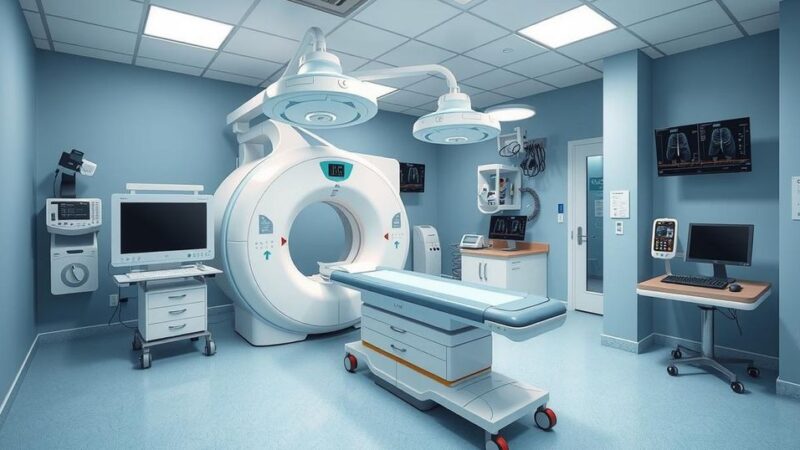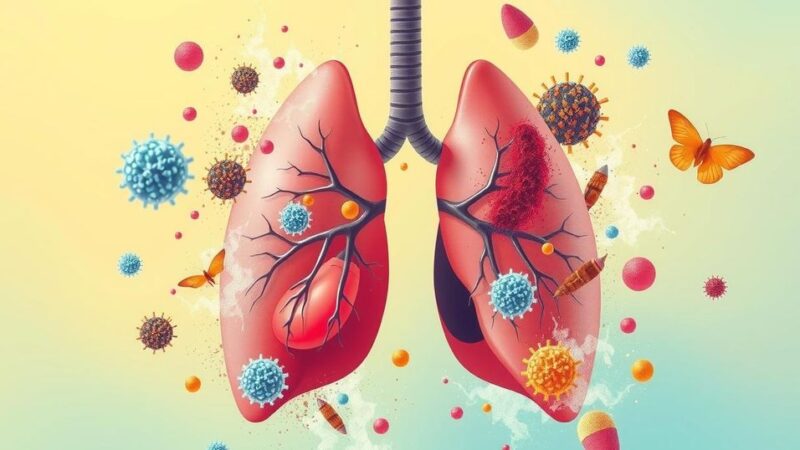Kentucky has made major strides in lung cancer treatment, reducing late-stage rates significantly since 2013. However, proposed cuts to federal funding threaten to reverse this progress by delaying clinical trials and cutting screening programs. Markey Cancer Center, the state’s sole NCI-designated center, plays a crucial role in providing treatment and conducting vital research, emphasizing the need for ongoing investment in cancer initiatives.
Kentucky’s fight against lung cancer has made significant strides in recent years. Once leading the nation in lung cancer rates, the state has seen a marked decline since 2013, when the University of Kentucky Markey Cancer Center attained National Cancer Institute (NCI) status. This designation has led to a decrease in late-stage lung cancer cases at more than double the national average, positioning Kentucky as second in lung cancer screening across the country, a move that has undoubtedly saved lives.
However, this progress is now under threat. Current proposals suggest a hefty 40% cut to the National Institutes of Health (NIH) budget, which risks delaying crucial clinical trials, reducing vital screening programs, and potentially closing doors on significant research just as momentum builds in cancer breakthroughs.
The UK Markey Cancer Center serves as Kentucky’s sole NCI Comprehensive Cancer Center, providing treatment to patients throughout the Commonwealth. An impressive 97% of the patients are Kentuckians, predominantly from Eastern Kentucky. Each year, about 38% of the 29,000 new cancer diagnoses in the state receive care at Markey or through one of its 20 affiliate locations. Last year alone, participants from 110 counties joined nearly 90 clinical trials.
To effectively carry out its mission, federal funding remains essential. Markey currently benefits from over $37.5 million in NIH funding, which supports more than 370 projects revolving around cancer research, clinical trials, and prevention initiatives. This funding is instrumental in providing new treatment options, nurturing the next generation of researchers, and ensuring that innovations reach patients in remote areas just as quickly as they do in urban centers.
Remarkably, many clinical trials supported by NIH offer Kentucky patients access to cutting-edge treatments for various aggressive and resistant cancers without having to leave the state. For instance, one recent trial demonstrated significant improvements for aggressive brain cancer by pairing radiation with a new chemotherapy. Another trial focusing on rare digestive tumors showed an 86% cancer-free rate at the one-year mark after ceasing previous treatments. A third ongoing study is looking into the effectiveness of continued immunotherapy for throat cancer, offering hope to patients facing the risk of recurrence.
Moreover, this federal backing bolsters local economies by retaining skilled researchers and healthcare providers in Kentucky. Between 2011 and 2023, Markey boosted its employment rate by an impressive 172% compared to the statewide rate of just 13%. Each job contributed also spurs additional employment in Kentucky.
The story doesn’t end with lung cancer; Kentucky has triumphed over colorectal cancer too. Decades ago, the state faced a daunting situation, but with intensified community screening efforts and research-driven interventions, colorectal cancer diagnoses and mortality rates have dropped over 30%. This shift translates into 650 fewer annual diagnoses and 275 lives saved each year.
These advancements illustrate the potential transformations brought about by consistent scientific dedication. Kentucky has evolved from a state synonymous with cancer fatalities to one where cancer is increasingly manageable. Thanks to ongoing research, over 300,000 long-term cancer survivors thrive in Kentucky today, highlighting the urgency of continuing to support cancer research.
With over 30 years of experience as a surgical oncologist, I can attest to the significant momentum we are currently seeing in cancer treatment. Federal support is crucial, as it fuels innovative therapies designed to target particular mutations and leverage the immune system to fight tumors. These advancements are translating into more survivors, sparking conversations about possible cures—something previously thought to be unimaginable in my career.
Dr. B. Mark Evers, M.D., serves as the director of the University of Kentucky Markey Cancer Center, the only Comprehensive Cancer Center recognized by the National Cancer Institute in the state.
Kentucky’s achievements in lung and colorectal cancer prevention illustrate the results of persistent federal investment in cancer research. However, proposed cuts to the NIH could jeopardize these advancements, hindering vital programs and potentially affecting thousands of patients. The story of Kentucky’s battle against cancer isn’t over yet, but continuing support is essential for future successes and the well-being of many.
Sumber Asli: nkytribune.com






